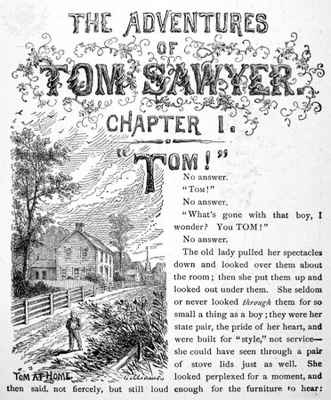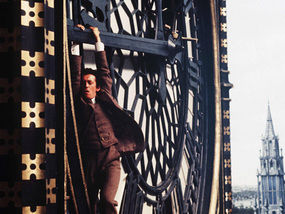From memory it was Billy Connolly who told of the shipyard
bosses who were suspicious that their workers were pilfering items from the shipyard
to sell in the local community.
So the bosses instituted a series of checks as people left
for home. Old Tam seemed to be stopped almost every time he passed through the
gates. His wheelbarrow was thoroughly checked for hidden items. But never was
anything found.
It wasn’t until Tam’s funeral, many years later, that a
company boss asked one of his colleagues how Tam had managed to feed and clothe
such a large family as he had, so well as he had, when the company had never found
any stolen gear in his wheelbarrow despite many careful searches.
That, replied Tam’s old colleague from the shipyard, was
because he was selling wheelbarrows.
***
Is something similar afoot in the Westminster Parliament -
with a seemingly innocuous amendment to the European Union (Withdrawal) (No. 6)
Bill (sponsored by Hilary Benn and Lord Rooker) being smuggled past watchful
eyes (particularly the diligent scrutiny of no-dealer Lord Forsyth who seems to
have been fervently ferreting through this legislative wheelbarrow looking for
contraband).
A parliamentary consensus coming from Commons’ back benches
– seemingly independent of rather intransigent elements
(including both front benches) – seems to be wheelbarrowing its way through the
gates of this fractious Brexit debate.
One of the most peculiar moments in a most peculiar week in
Westminster (the drama of cricket this summer surpassed only by events in
politics) was the passing of an amendment - the ‘Kinnock amendment’ - which reflects
the content of the cross-party talks that enhanced Mrs May’s bare withdrawal
agreement, but were never debated in parliament.
The amendment was unusual because it passed without a formal
vote because no tellers were presented to undertake a head count. Contrary to
some reports, it seems it was not the government who failed to present tellers
in the division lobbies as part of some genius tactical subterfuge from No.10.
In the Lords’ debate on Friday 6th September, Lord Forsyth
(a devoutly pro-Brexit peer and not to be confused for an erudite lawyer like
Lord Mackay of Clashfern - as (much respected) Lord Cormack explained to some
laughter after a slip of identity) said:
“[I]t was… the promoters of the Bill who failed to provide
tellers for the Division, which is how this [amendment] has ended up in the
Bill”.
This may have been useful as it saved any Conservative
rebels names being recorded as having supported the amendment. Given the zealous
withdrawal of the Conservative Whip, that might have been of some reassurance
to Conservative MPs wishing to support Mr Kinnock’s amendment.
Moreover nothing in the unusual way that the Kinnock
amendment was incorporated into the bill (the omission of sponsors’ tellers)
rendered it out of order.
Lord Mackay, a formidable legal expert, made that clear when
the bill was subsequently considered in the Lords.
The point is reflected in what Sir Ivor Jennings writes in
the 2nd edition of his book Parliament published in 1957.
Jennings writes: “The law knows nothing of the legislative
process. An Act which appears on the Roll of Parliament as having been enacted
by the Queen on the advice of the two Houses, or of the House of Commons alone
under the Parliament Acts 1911 and 1949, is good law whatever the method
adopted for its passage” (1957, p.237).
Lord Goldsmith, speaking for the Labour Party in the Lords,
raised the question of whether No.10 could entirely be trusted given the prime
minister’s comments that morning that he would not seek an extension to Art. 50
– even if that was an obligation placed on him by the legislation at hand. (The
rule of law seeming, shamefully, to have temporarily been abandoned by No.10).
Lord True (another diligent advocate of exiting the EU who
labelled himself an ‘inconvenient True’ in the Lords) put on the record that he
had been under the impression through the ‘usual channels’ in the small hours
of Thursday morning that the Kinnock amendment would be removed.
So some distinct machinations seem to be in play on all
sides.
Lord Mackay noted that the Kinnock amendment distinguished
between the withdrawal agreement (which will not be re-opened) and the
political declaration (which can be reviewed).
The difficult question of providing a ‘backstop’, as
insurance regarding sensitive border controls, said Lord Mackay was a part of
the political declaration and did not affect the withdrawal agreement. The
Kinnock amendment helpfully separated the withdrawal agreement and the
political declaration and did so in a way that was perfectly understandable “even
for lawyers” (cue chamber chuckles).
This observation has a very serious aspect because it indicates that any attempt to suggest that the provision is unclear or ambiguous in subsequent litigation at the hand of the government would be ill-conceived.
Lord Mackay then (at col. 1261) put the Bill and the amendment
into context:
“The whole thing is a Private Member’s Bill by a group that
was not part of the Government as such. It may have included Members who were
previously in the Government, but at any rate it is not a government Bill. The
Government therefore do not care for it at all, so I do not know why they
should have to propose an amendment to part of it. It is perfectly right that
they had not done so. I understand they have been advised that it is
meaningless. I do not agree with that, and I do not think anybody who reads it
will think it is meaningless; it is perfectly clear what is wanted. It is the
basis on which an extension is asked for.
According to the formulation of the noble Lord, Lord Kerr,
no conditions are attached. However, if you apply for an extension the European
Union will require a reason—which seems to be common sense—and, if you give a
reason, good faith suggests that that is the reason, and therefore it promotes
the likelihood that something may suddenly emerge which distinguishes between
the political formulation and the withdrawal agreement, which is the vital
thing to get through in time.”
Lord Calanan, for the government, took a different line to
Lord Mackay suggesting that the amendment was poorly drafted, inconsistent and
would be inoperable. The government’s view may be coloured by politicking.
Lord Mackay’s is the better view. It allows the amendable political
declaration to encompass the aspects of the cross-party withdrawal agreement
bill that was never debated in parliament. Mrs May’s (separate) withdrawal
agreement will remain intact.
Might there be a split in parliament as between, on the one
hand, those advocating a no deal (hard) Brexit and, on the other hand, those
who would vote for Mrs May’s withdrawal agreement (including Ministers such as
Michael Gove) and consider an associated withdrawal bill with additional issues
categorized under the political agreement?
Intriguingly, Mr. Gove previously worked with No.10’s chief
special advisor (spad) Dominic Cummings but Mr Gove has, famously, had
(possibly unresolved) disputes with Mr Johnson. Where this web of allegiances
and bruised relationships has settled now is difficult to determine
conclusively. It is possible that these pressures are operating in the current
febrile climate.
Prime Minister Johnson seems to be keen to accommodate the
wishes of the Conservative Party’s European Research Group who advocate a hard,
no deal, Brexit. He also has Nigel Farage’s Brexit Party in his peripheral
vision who entertain essentially the same perspective.
The prime minister’s chief spad, Dominic Cummings, is
reported to have told a meeting on Friday 7th September that the
people who are cross about his tactics “will melt” when they learn of what he
has planned in coming weeks.
Whether this comment indicates a coming tactical masterstroke
or simply bluster remains to be seen.
The controversial prorogation of the Westminster Parliament
scheduled from 9th September to 14th October – among other things resetting the
calendar of parliamentary sessions - allows the return of the withdrawal
agreement itself, despite its having failed in a variety of nuanced forms on
three previous occasions.
In the Commons Committee stage of the European Union
(Withdrawal) (No. 6) Bill, on 04 September 2019, Volume 664, cols. 258-9, Mr
Kinnock indicated that an amendment would encompass an extension to January 31st
2020. If completed before, even feasibly before 31st October
depending on parliament’s schedule, that would be a bonus.
“The explicit purpose, we state, should be to pass a Brexit
Bill, and, more specifically, to pass something similar to the withdrawal
agreement Bill that was drafted in May 2019 as a result of cross-party talks.”
The crucial milestone is getting the withdrawal agreement
bill past its second reading stage. The withdrawal agreement bill would
encompass the cross-party talks in draft form but has yet to be published.
Mr Kinnock continued: “The cross-party talks gave the detail
that we need. That was a direct result of the hard work of Opposition and
Government Front Benchers and negotiating teams over the course of six weeks of
serious talks. The concessions included a customs union compromise, with a
binding vote on post-Brexit customs arrangements; a workers’ rights Bill that
would guarantee that employment rights in the UK would not lag behind those of
the EU; a pledge that the UK would see no change in the level of environmental
protection after Brexit; a promise to seek as close to frictionless trade in
goods with the EU as possible while being outside the single market and ending
free movement; a commitment to having parliamentary time to allow for a vote
at Committee stage on whether the deal should be put to a second referendum; an
assurance to MPs that they must have the final say on the future UK’s relationship
with the EU; and a promise that Northern Ireland would stay aligned with the
rest of the UK on regulations and customs, even if the backstop were to come
into force.”
So, from a moderate parliamentary consensus, we may have the
reappearance of Mrs May’s withdrawal agreement (the instrument fixed as between
the UK and the EU to ensure the UK’s orderly departure of the EU) in tandem with a withdrawal agreement
bill which incorporates some enhanced cross-party add-ons categorized as part
of the political agreement for future relations that can be amended.
But some more
entrenched, polarized, views may seek a more abrupt parting of ways,
Commons Committee stage of the European Union (Withdrawal)
(No. 6) Bill, on 04 September 2019, Volume 664:
https://hansard.parliament.uk/Commons/2019-09-04/debates/28FF2CA0-05AE-40C9-881D-6356D81476F7/EuropeanUnion(Withdrawal)(No6)Bill?highlight=kinnock#contribution-C40243A4-29D2-452E-840E-94F8E353224A
Report stage of the European Union (Withdrawal) (No. 6) Bill,
06 September 2019, Volume 799:
https://www.parliamentlive.tv/Event/Index/fac0a08f-1115-43e0-9536-110bef63210c








